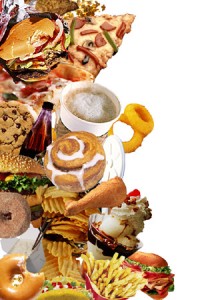For a lot of years, I didn’t have many friends. It’s not that people didn’t like me. It’s just that I chose to isolate from the rest of the world for a long time. People with mental illness and addiction do that sort of thing.
Mood music: “Damn Good” by David Lee Roth:
[youtube=http://www.youtube.com/watch?v=-mIP7ySBXBg&hl=en_US&fs=1]
I’ve been thinking a lot about it lately, because these days I seem to be spreading myself thin making plans with a lot of people. It’s a problem that’s well worth having. A blessing, for sure.
I’ve gotten some good quality time in this week with my friends, the Littlefields. They’re staying in a beach house on Salisbury Beach and invited me over.
I spent all Wednesday morning there and some of last night. I’ve learned a few things about this family: Kevin’s oldest daughter, Courtney, has a razor-sharp wit. She keeps her old man on his toes, much to my entertainment. I’ve also learned that Matty, the 5-year-old, likes to run around outside in his underwear and that seagulls are terrified of him. He also kicks serious ass on the Xbox.
I’ve gotten the chance to catch up with many more friends this summer. Some of this is the Facebook effect, reconnecting with a lot of people from the past. But for me, there’s a lot more to it.
For a long time I preferred to hole up in my room or in my car. It was easier to go on a binge that way. People always get in the way when you’re obsessed with getting junked up.
It was also too painful to talk to people. I was way too self-conscious to pay attention to anyone else. I was 280 pounds at one point, and didn’t want to be seen that way. I also had little in common with people in general. I was so isolated that all I did was watch science fiction shows on TV. Life can be limiting when all you have to talk about is Star Trek or Star Wars.
I filled up the rest of my time with work, trying hard to please the masters and working 80-hour weeks. That too is a great way to isolate. You don’t have to talk to too many people when you’re holed up in an office all the time.
Why Erin stayed with me through that period is beyond me. But she did.
When did the isolation break? Probably a few years into my recovery. Once I reached a point in therapy where I could start to manage the OCD and shed the fear and anxiety that always hung over me, I suddenly found myself hungry to see new places and meet new people. I’d say that turning point came sometime in 2007. I haven’t looked back. 
I travel frequently for work, and when I do I always make time to see friends who live in whatever area I’m visiting — San Francisco, Chicago, Toronto, Washington DC, New York, etc.
As time goes on, the list of people to visit is getting a lot longer.
I didn’t see that coming.
But I’m not complaining.


